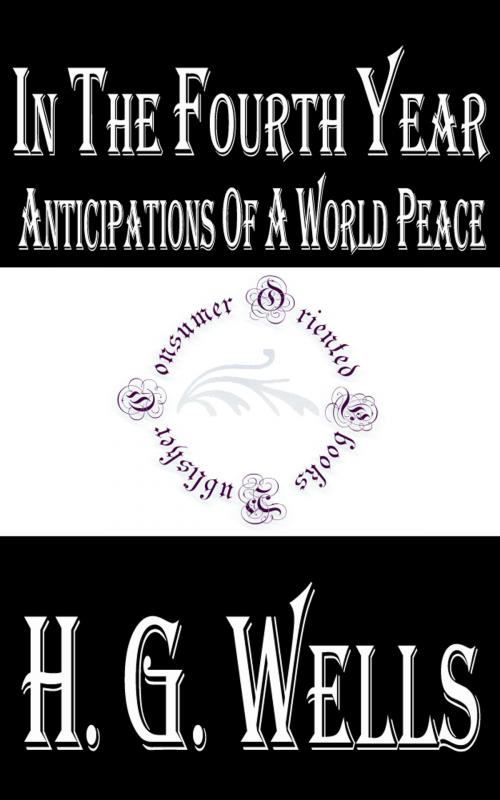In The Fourth Year - Anticipations of a World Peace (1918)
Nonfiction, Social & Cultural Studies, Political Science, Government, Democracy, History, Military, World War I, International, International Relations| Author: | H.G. Wells | ISBN: | 1230000276374 |
| Publisher: | Consumer Oriented Ebooks Publisher | Publication: | October 25, 2014 |
| Imprint: | Language: | English |
| Author: | H.G. Wells |
| ISBN: | 1230000276374 |
| Publisher: | Consumer Oriented Ebooks Publisher |
| Publication: | October 25, 2014 |
| Imprint: | |
| Language: | English |
In the latter half of 1914 a few of us were writing that this war was a "War of Ideas." A phrase, "The War to end War," got into circulation, amidst much sceptical comment. It was a phrase powerful enough to sway many men, essentially pacifists, towards taking an active part in the war against German imperialism, but it was a phrase whose chief content was its aspiration. People were already writing in those early days of disarmament and of the abolition of the armament industry throughout the world; they realized fully the element of industrial belligerency behind the shining armour of imperialism, and they denounced the "Krupp-Kaiser" alliance. But against such writing and such thought we had to count, in those days, great and powerful realities. Even to those who expressed these ideas there lay visibly upon them the shadow of impracticability; they were very "advanced" ideas in 1914, very Utopian. Against them was an unbroken mass of mental habit and public tradition. While we talked of this "war to end war," the diplomatists of the Powers allied against Germany were busily spinning a disastrous web of greedy secret treaties, were answering aggression by schemes of aggression, were seeing in the treacherous violence of Germany only the justification for countervailing evil acts. To them it was only another war for "ascendancy." That was three years and a half ago, and since then this "war of ideas" has gone on to a phase few of us had dared hope for in those opening days. The Russian revolution put a match to that pile of secret treaties and indeed to all the imperialist plans of the Allies; in the end it will burn them all. The greatest of the Western Allies is now the United States of America, and the Americans have come into this war simply for an idea. Three years and a half ago a few of us were saying this was a war against the idea of imperialism, not German imperialism merely, but British and French and Russian imperialism, and we were saying this not because it was so, but because we hoped to see it become so. To-day we can say so, because now it is so.
In the latter half of 1914 a few of us were writing that this war was a "War of Ideas." A phrase, "The War to end War," got into circulation, amidst much sceptical comment. It was a phrase powerful enough to sway many men, essentially pacifists, towards taking an active part in the war against German imperialism, but it was a phrase whose chief content was its aspiration. People were already writing in those early days of disarmament and of the abolition of the armament industry throughout the world; they realized fully the element of industrial belligerency behind the shining armour of imperialism, and they denounced the "Krupp-Kaiser" alliance. But against such writing and such thought we had to count, in those days, great and powerful realities. Even to those who expressed these ideas there lay visibly upon them the shadow of impracticability; they were very "advanced" ideas in 1914, very Utopian. Against them was an unbroken mass of mental habit and public tradition. While we talked of this "war to end war," the diplomatists of the Powers allied against Germany were busily spinning a disastrous web of greedy secret treaties, were answering aggression by schemes of aggression, were seeing in the treacherous violence of Germany only the justification for countervailing evil acts. To them it was only another war for "ascendancy." That was three years and a half ago, and since then this "war of ideas" has gone on to a phase few of us had dared hope for in those opening days. The Russian revolution put a match to that pile of secret treaties and indeed to all the imperialist plans of the Allies; in the end it will burn them all. The greatest of the Western Allies is now the United States of America, and the Americans have come into this war simply for an idea. Three years and a half ago a few of us were saying this was a war against the idea of imperialism, not German imperialism merely, but British and French and Russian imperialism, and we were saying this not because it was so, but because we hoped to see it become so. To-day we can say so, because now it is so.















